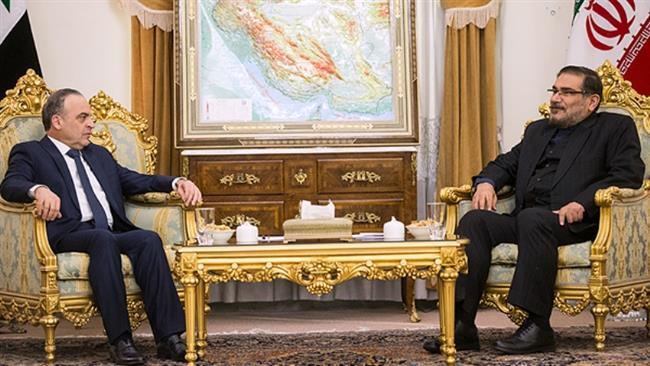Iran’s leadership has received the latest appeal from the Syrian regime for economic help, amid the 77-month conflict challenging Bashar al-Assad.
Syrian Prime Minister Imad Khamis led a delegation meeting Iran’s 1st Vice-President Eshaq Jahangiri and later had discussions with Ali Shamkhani, the Secretary of Iran’s Supreme National Security Council.
Khamis officially conveyed Assad’s congratulations to Iranian President Hassan Rouhani, inaugurated on Saturday for a second four-year term. However, the talks considered the fight against “terrorism” — the Assad regime’s label for the Syrian rebellion — and “joint strategic cooperation”, including in economic and trade relations.
Syrian State media carefully framed Khamis’s appeal, presenting it as the “necessity of achieving a qualitative leap in economic and developmental relations through taking unconventional and clear steps to enhance economic cooperation”. He called for the activation of a Syrian-Iranian Higher Economic Committee; for major Iranian companies to invest in Syrian commerce, industry, and agriculture; and for Tehran to accept more Syrian good in Iranian markets.
Since 2011, Iran has propped up the Assad regime with billions of dollars of assistance, including oil shipments and reconstruction of infrastructure, despite Tehran’s own economic challenges amid US-led sanctions. Iranian interests, including the Revolutionary Guards, have extended their control of Syrian assets such as development of property in southern Damascus and acquisation of resources such as phosphate mines.
Despite military advances against rebels since Russian intervention and the escalation of Iranian involvement in autumn 2015, the Assad regime still faces a crippled economy and likely long-term dependence on outside interests. GDP fell by an average of 19% each year between 2011 and 2015 and about 8% in 2016. The UN has estimated that Damascus needs an investment of $180 billion to bring GDP back to pre-conflict levels.
Iranian media avoided reference to the economic topics of the meetings. Instead they featured Shamkhani’s line, “Unfortunately, instead of fighting terrorist elements, Western countries and the US continue to take suspicious measures in line with perpetuating terrorism and insecurity in the region.”

